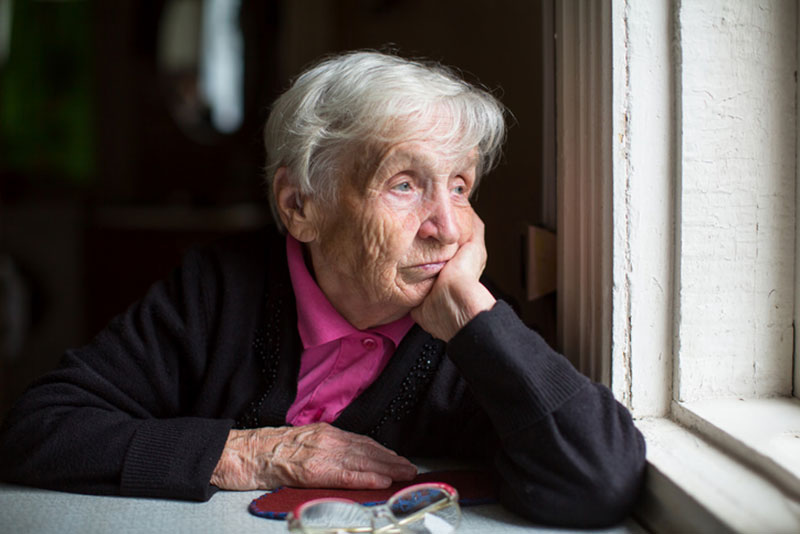
Learn how to cope with anhedonia, a troubling emotional change in seniors.
Following the eventfulness of the holidays, it’s not uncommon for the winter doldrums to kick in. Yet what could appear at first to be a bit of boredom could in reality be something more serious that should be addressed.
Anhedonia is an emotional change in seniors that leads to a loss of interest in activities that someone once took pleasure in. It is a sign of depression that is often dismissed in older adults. Anhedonia presents through symptoms such as:
- A need to self-isolate and steer clear of social activities and friendships
- Unfavorable feelings directed at either themselves or other people
- A decrease in emotional abilities
It’s always a good idea to consult with a doctor in the event that you notice any warning signs of depression in an older loved one. Effective treatment methods are available. Furthermore, there are things family caregivers can do to help, too.
What Can You Do to Assist a Loved One Living With Anhedonia?
- Change the diet. Foods containing serotonin often help boost a person’s mood and combat depression. Add in more mood-enhancing foods such as fruit, whole-grain bread, dark chocolate, yogurt, and spinach.
- Encourage exercise. Physical activity is an additional way to boost mood through the release of feel-good hormones. Bring the grandchildren over to play, drop by the gym for a class or to swim, or simply go for a walk together.
- Improve sleep habits. Sleep deficiency and anhedonia can play off each other in a cycle of fatigue, lack of motivation, and anxiety. Develop and keep up with a regular sleep schedule, have a light dinner and then switch off the television and devices, and end the day with soothing activities such as working on a puzzle, reading a book, or listening to music.
- Socialize more. This one may be challenging, as anhedonia impacts a person’s desire to be around others. Figure out what types of social settings might feel less overwhelming to the person: signing up for a class, becoming a member of a group at their place of worship, regular lunch or coffee dates with a friend or neighbor, etc.
- Emphasize the positives. Reminiscing is helpful for a loved one with anhedonia, allowing the person to share fond memories. Browse scrapbooks, videos, or photo albums together and ask the senior to share funny experiences from the past. It may also help to start a journal of every happy moment that occurs during the day, in spite of how insignificant they may seem. At the conclusion of every week, look back through the journal together to see how many positives there are in our everyday lives.
It’s also a good idea to encourage professional counseling, providing the chance for the individual to consult with a therapist on a regular basis and to learn some coping tools to help. And, always try to be as supportive and empathetic as you can. This isn’t always easy with somebody who seems to be unable to break out of negativity, yet it’s extremely important to let an older loved one know you’re there with them no matter what their mood.
How Can Home Care Help?
An in-home caregiver is a great resource for someone struggling with anhedonia. We are able to provide:
- Companionship for exercising, engaging activities, conversations, and enhanced socialization
- Meal planning and preparation, using healthy, serotonin-rich foods
- Transportation to fun outings or medical appointments
- And more
Contact Home With You Senior Care’s experts in home and dementia care in Howard County and the surrounding areas at 410-756-0959 to learn more about how in-home care services can improve quality of life for someone you love.
